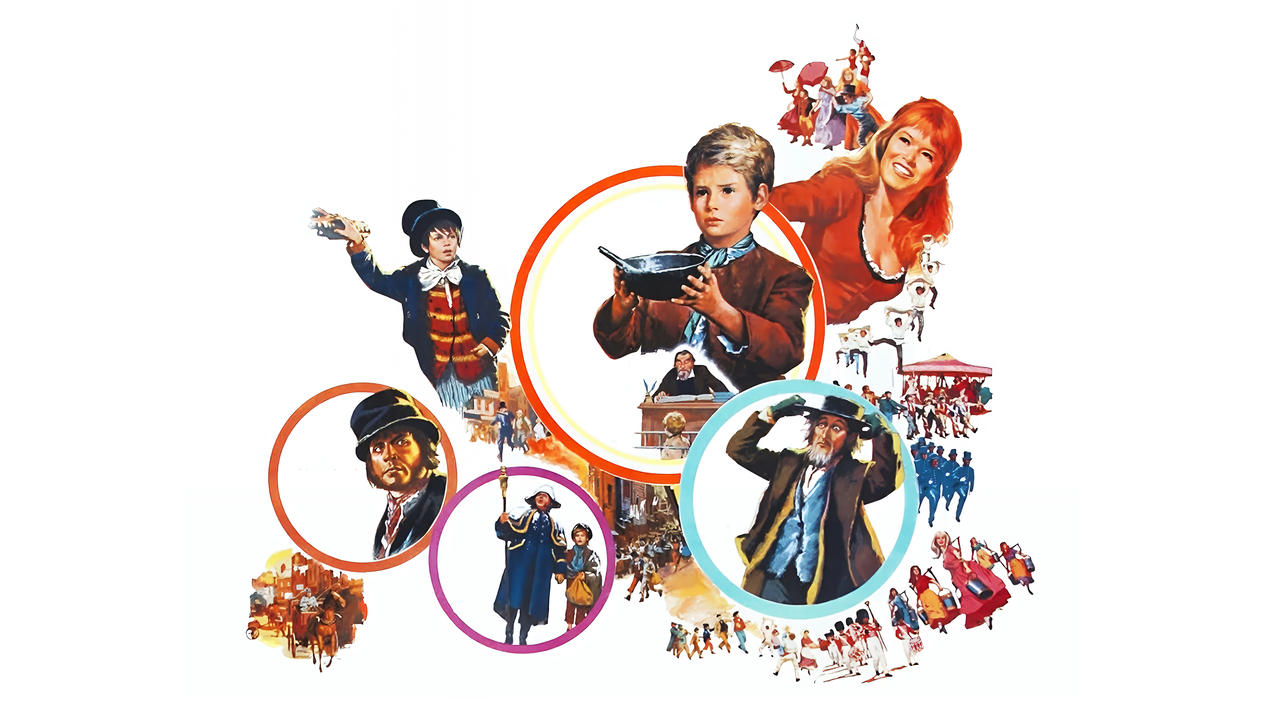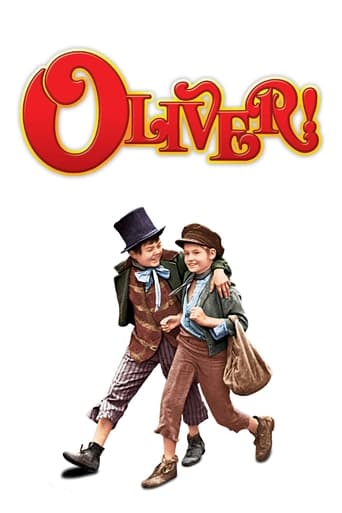

The film makes a home in your brain and the only cure is to see it again.
... View MoreThis is a must-see and one of the best documentaries - and films - of this year.
... View MoreStory: It's very simple but honestly that is fine.
... View MoreEach character in this movie — down to the smallest one — is an individual rather than a type, prone to spontaneous changes of mood and sometimes amusing outbursts of pettiness or ill humor.
... View MoreOliver!3 Out Of 5Oliver is a character driven musical about a boy who is adapting and learning as he outgrows difficulties that comes before him in various faces. The camera work is amazing as it lights up the whole screen and fills it up with an energy that can easily feed itself for runtime which may be overstretched but is undeniably glorifying to encounter. It is rich on technical aspects like costume design, production design, choreography, art design, background score and songs whilst is a bit short on editing; it easily could have been of 2 hours. There isn't much work allotted to the writing section as most of the communication is conveyed through musical acts, which are again, beautifully shot and is immensely pleasing on screen. The screenplay by Vernon Harris is neither gripping nor smart, but it certainly has a heart and reasoning in there for the audience to root for its sketchy characters. Carol Reed; the director, has done a decent work on pulling off this act on such a larger scale. The performance by the younger cast is amazing especially all the musical acts that they have pulled off and so are the experienced cast supporting them. Oliver! is neat and essential for the subsequent generations but it may not be as entertaining or wise as it seems.
... View MoreCarol Reed was a genius, he was the man who conceived The Third Man and The Fallen Idol, great movie thrillers. So the director who made one of the biggest noir movies in film history, decides to adapt, the "classic" by Charles Dickens, Oliver Twist, book that I do not particularly like. The film is full of mistakes, starting with the idea of transforming Dickens' work into a musical full of light and color with hectic choreography, in order to soften the tone of the work, deserves a seal of ridicule. The villainy of Fagins is another factor that has gone bad in the film, even the character itself is misunderstood by Ron Moody. Mark Lester, the protagonist of the film is very annoying. There is no memorable song (even Chicago has memorable music). And Carol Reed seems to have made the movie just to get some money to renovate the bathroom, it's obvious his bad luck. The pace is too much (I almost slept). At least the set design and costumes save the film. I did not understand the Oscars that this movie won, okay, Carol Reed's even I understand, it was more of his work, but, he won in place of Kubrick with 2001: A Space Odyssey was a gross slut from the academy. The other five Oscars should be why the year's voters were drugged. Anyway, ridiculous.
... View MoreOliver! -this classical musical proved, that Oliver Tvist looks the best in cinema as musical. In this adaptation we see excellent cast with Carol Reed's nephew-Oliver Reed. But what is a true discovery in "Oliver!"-it's great Ron Moody as the best Fagin ever. Let's listen to Fagin (Ron Moody) song from "Oliver!" , which represents the typical tragicomical and warm note of that adaptation-"Reviewing the Situation"https://www.youtube.com/watch?v=96rC4X_KWl4&t=20
... View MoreBritish film studios have not been known for turning out large numbers of first-rate musicals. But "Oliver" is a HUGE exception.The 1968 version of Charles Dickens' "Oliver Twist," based generally although not slavishly on his original story, absolutely sparkles with great music, very fine acting, and some lessons about life, and people, that many of us may not notice the first or second time we see the film. Which is a good reason to watch it several times -- as I have, over the years.Oliver Twist is a little boy in a British orphanage, where the unfortunate youths are forced to perform hard manual labor all day, and are fed almost solely on thin gruel by the miserly managers of the place. Emboldened by his mates to tell the head whip-cracker, "Please, sir, I want some more!", poor Oliver is expelled from the orphanage and sold ("Payment upon liking," says his new "owner," a skinflint undertaker)as a virtual slave.Events enable Oliver to escape the undertaker's cellar, where he has been cast down for "misbehavior," and he winds up in London, where a vagrant boy about his age, The Artful Dodger, introduces him to the "orphanage," so to speak, run by a criminal named Fagin, who teaches "his" boys to pickpocket, and fences goods stolen by a burglar named Bill Sikes.It is worth noting that, while Fagin exercises strict control over the young boys living with him, he appears to feed them better, and to treat them with more respect, than the establishment orphanage bosses.Oscar becomes the favorite boy of Sikes' beautiful live-in girlfriend, Nancy, and that eventually leads him into trouble. Sikes' first appearance in the film comes at a crowded pub, late at night, after he has pulled a very profitable burglary. Preceded by his large, ominous-looking shadow as he walks in, he is a tall, unsmiling thug -- someone who "you wouldn't want to mess with," as we would say in the U.S.Sikes is good at bullying and intimidating elderly men (Fagin), women (Nancy) and boys (Fagin's wards at his evil orphanage). But in the disturbing climactic scene, as he attempts to escape the London bobbies and outraged citizens after killing Nancy, while holding Oliver as hostage, a policeman's gun proves to him that all bullies and thugs, eventually come to a bad end.The music, and the dancing, in "Oliver," are absolutely superb. One extended music and dancing scene, which takes place in a circular plaza in an upper-class neighborhood, was so good that it caused me goosebumps.Ron Moody as Fagin; Shani Wallis, as Nancy; Oliver Reed, as Bill Sikes; Mark Lester, as Oliver; and Jack Wild as The Artful Dodger, play their parts to absolute perfection. This film won five Academy Awards, and in my opinion, should have received more. If you're a Dickens fan, and you want to see a really great musical with a different accent than the usual Hollywood kind, go see "Oliver."
... View More